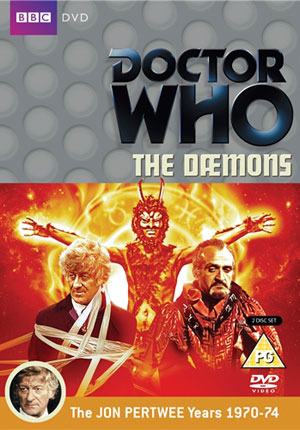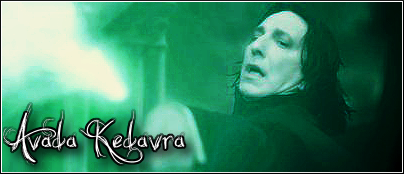 Oh, what to say about the Daemons. It's not a bad story. In fact, it's a very well put together story, with many interesting elements. It's got great payoffs for earlier setups (the remote control Bessie) and has some interesting themes running through it.
Oh, what to say about the Daemons. It's not a bad story. In fact, it's a very well put together story, with many interesting elements. It's got great payoffs for earlier setups (the remote control Bessie) and has some interesting themes running through it.However, unfortunately, the power of love saves the day and aliens have influenced every advance on earth forever. Not that either of those are bad, they just didn't seem to properly fit in the story.
So for my (completely unplanned) review today, I'll be talking about science vs. magic, the power of love, and alien influence. Also, Master's opinion that he's worthy to rule over earth, as a sort of wrap up to the Time Lord Season 8.
Science vs. Magic
In fiction, there is no difference between science and magic.
Literally, there is none.
In fiction, there is only a difference between science and miracles.
Science, as I understand it to mean, is simply a means of understanding the world around us. That's all it is. Using the scientific method to support theories about the physical workings of the world around us, and then applying those theories to create new technologies.
 |
| Poor Dumbledore...and poor Snape... |
Magic, is (or at least ought to be) the application of a well defined system of actions that produce results that would not occur in the real world. If I wave a Harry Potter wand (of which I have collected quite a few) at the spider that's crawling up the wall of my living room and say "Avada Kedavra," nothing will happen. But in Harry Potter, you bet that every time someone waves their wand and says Avada Kedavra, it shoots the Killing Curse. And if I pray a prayer to R'hllor and kiss a dead person on the lips, nothing will happen. But you bet when Thoros does it in A Song of Ice and Fire, people come back to life. There are rules to magic, and if you obey the rules of magic, you can use magic to produce results.
How is knowing the laws of gravity and using them to roll a wagon down a hill different from knowing the levitation spell that will put the wagon back at the top, in a universe where both are equally possible?
Well, there is one big difference. Actually, it's what defines the two subgenres of speculative fiction: fantasy and sci-fi. If you use technobabble to explain your impossible gadget, it's sci-fi. If you use mystical words, it's fantasy. I've its got chemicals, it's sci-fi; if it's got potions, it's fantasy. Etc.
So all the Doctor is really proving when he explains that there is no such thing as magic to Jo is that Doctor Who is set in a sci-fi universe, and not a fantasy one.
 When the Doctor explains away the Daemons and Azal, he isn't proving that Azal doesn't have magical powers. When he says that Azal is a scientist and the earth is his scientific experiment, he's not claiming that Azal doesn't have the power to destroy the earth. Quite the opposite, in fact. But he is proving that it can be explained by him being an alien and very advanced; he's using sci-fi tropes instead of fantasy ones.
When the Doctor explains away the Daemons and Azal, he isn't proving that Azal doesn't have magical powers. When he says that Azal is a scientist and the earth is his scientific experiment, he's not claiming that Azal doesn't have the power to destroy the earth. Quite the opposite, in fact. But he is proving that it can be explained by him being an alien and very advanced; he's using sci-fi tropes instead of fantasy ones.
That's all it is. Literally. Because if you look at Doctor Who, the show is really not science based at all.
Doctor Who is fantasy, given sci-fi names:
- The TARDIS. A sentient alien time ship that is dimensionally transcendental and uses a black hole, which was engineered by the scientist Omega, for power. Also known as, "magic box that's bigger on the inside."
- Regeneration. A physical process that is either genetic or technologically instilled in a Time Lord that enables them to rewrite their biology upon the moment of death in order to heal a damaged body. Also know as, "healing power."
- Sonic Screwdriver...does it really need saying?
- The Time Vortex. The essence of time through which all time travelers go to reach the past and the future. Who am I kidding, I can't even make that sound sci-fi!
Now, I'm not complaining about this. If I wanted to watch realistic fiction, I wouldn't be a Doctor Who fan. The point of watching speculative fiction is to see unrealistic and impossible settings. What fun would Star Wars be without hyperspace and the force? Or Honor Harrington without Impeller Drives. Or that John Ringo series that my brother got me to read a book of, that had those mental implants that were really cool...the first book was called Live Free or Die, I believe.

My point is not that Doctor Who is fantasy, but that fantasy and sci-fi are actually the same level of impossible, just worded differently. There is no difference between science and magic.
There is, however, a difference between science and miracles.
The Eleventh Doctor explains miracles: "The Universe is big. It's vast and complicated and ridiculous. And sometimes—very rarely—impossible things just happen and we call them miracles. And that's the theory. 900 years, never seen one yet."
Miracles are impossible events. They are outside the possibilities of whatever universe they occur in.
In our universe, Jesus rising from the dead is a miracle, because it is impossible to come back to life after being dead three days. In the Doctor Who universe, the Doctor rising from the dead is not a miracle, because it is possible for his regeneration to have been temporarily disabled by human anesthetics and thus for him to be dead for a short time before he regenerates. In the Harry Potter universe, Harry Potter coming back from the dead is not a miracle, because Lily Potter's love magic tethered him to Voldemort's life.
 |
| This is what comes up when you Google "Doctor Who plot holes" |
When there are miracles in fiction we cry "bullshit!" and call it a plot hole.
The ending of The Rings of Akhaten is a miracle, for example. Whatever happened with the Old God was not explained, and didn't work according to the previously set forth rules that the universe was assumed to operate on.
In fiction, magic is good. Science is good. Miracles, however, are not good.
The Power of Love
And of course, no discussion of science vs. magic would be complete without one about the power of love. The power of love is decidedly a fantasy trope. And yet, at the end of an episode that spends so much time proving that Daemons are aliens and magic doesn't exist, love saves the day.
Now, I personally like the idea of the power of love saving the day. I wish the power of love saved the day more in real life - and it already does, often. It saves us from conflicts with friends and family, it enables a mother to lift a car to save her baby, it causes people to be self-sacrificing when they would otherwise be selfish, etc. So having it save the day using fantasy tropes and superpowers just seems like a symbolic representation of a good aspect of our world.
 |
| Protect the Doctor from the Avada Kedavra! |
But it really does seem incongruous here. Azal is just a scientist. He isn't the embodiment of all evil. So the fact that an act of love is illogical shouldn't technically melt his brain. (Perhaps it was just a miracle?) He perhaps would have been confused and conflicted, and not understood, but to actually die from seeing something he didn't understand doesn't make sense. He's a scientist. Scientists see things they don't understand all the time; that's what they study.
Still, it was very sweet seeing Jo ready to sacrifice herself for the Doctor. I didn't think I would like Jo at first (no one could ever replace Liz Shaw) but I really do like her now. She's not always the strongest companion, but she certainly has her moments, and she's just a really sweet person.
Verdict: Power of love accepted. Because my logical brain is melted by sentiment. "She would sacrifice herself? Awwwww!"
Alien Influence
How much of humanity's accomplishments have actually been achieved on our own? It seems that we've had aliens shaping our history for as long as we've been around. The earth was formed by a Racnoss ship, life sparked by Scaroth's ship, and shaped by the Daemons and the Silence. The Doctor has done his fair share of meddling too and protected us from sudden destruction across many centuries.
What does that make humanity? The Doctor so admires the fact that we exist to the end of the universe (let's not talk about what we do after that...), but how much of that is really our accomplishment?
If other species have done everything for us, they why are we important? What have we ever done that makes us relevant in the universe? Or are we just a giant petri dish in which all ideas are tested and grow, so we eventually move out to conquer the universe using what's already been sown in us by aliens? What does the Doctor see in us?
 |
| And it's totally not because this guy is very attractive.... |
The problem that I have with the "aliens omnipresent in history" idea is the same one that I have with the Doctor being half human in the TV Movie (and I love the TV Movie, by the way). It makes humanity less important. Yes, I'm an egotistical little human here, typing away at my computer, who likes to think that I'm somewhat worthwhile to the larger universe. If the Doctor only likes us because he's one of us, then what's the point? And if the only things worth liking about us are the product of other species, then what's the point?
It works a few times. If you do it too many, we cease to have accomplished anything at all.
Everything in moderation. Especially this.
Master of the Human Race
There are two people who Azal could have potentially chosen to rule the earth in his place: the Doctor and the Master.
 |
| Yeah, we saw how well his interference in human politics went.... |
Now, if this season has proven anything, it is that the Doctor would never rule the earth, and the Master should never rule the earth. Time Lords have incredible technology, but they are not actually more moral than our species, which is the only criterion that matters when it comes to being given power to rule (I've already written about this).
Time Lords do not deserve to be lords of anything but time, which they can watch over and protect, but never interfere with. That is where the Time Lords belong, and when they overstep that, bad things happen.
So the Doctor refuses Azal's power, and Azal refuses the Master his power.
It seems that Time Lords are not the greatest thing ever. Humans will have to continue on ruling themselves. Because, in the words of Martha Jones, "We are good."


No comments:
Post a Comment